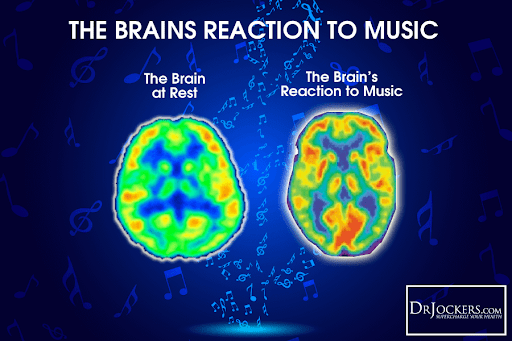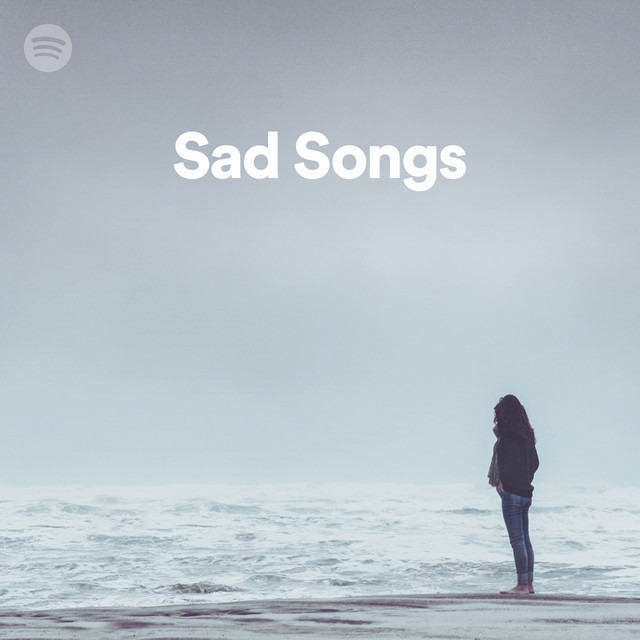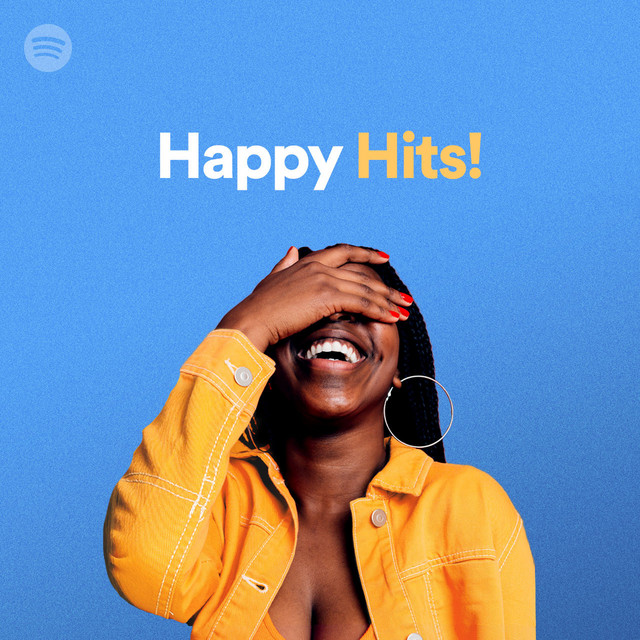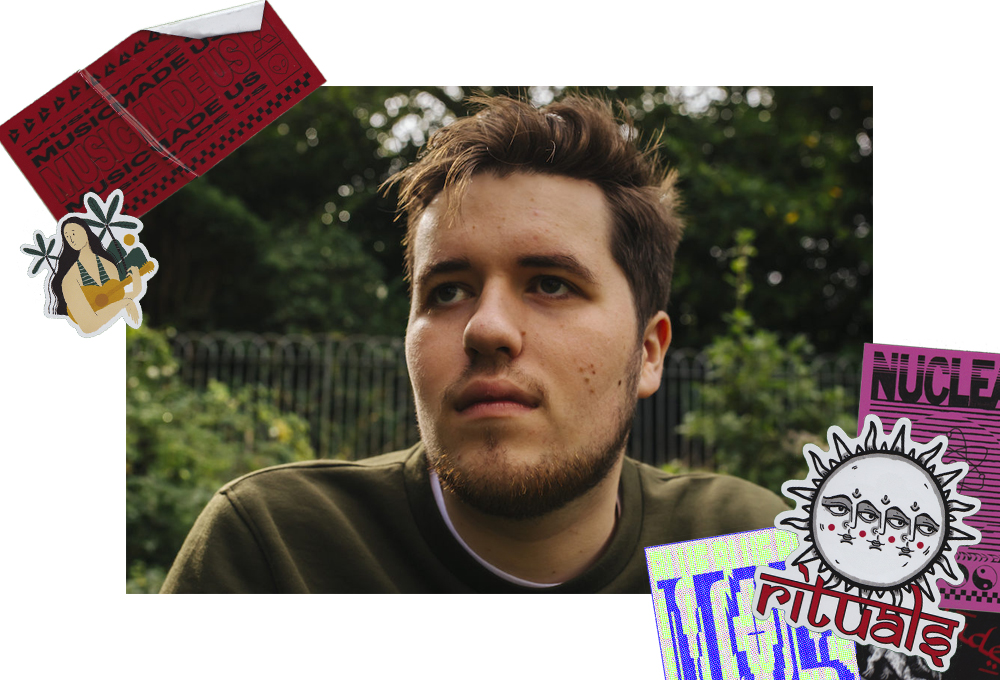As part of our Music Made Us campaign, creatives, music professionals, experts and journalists reflect on how music has been there for us through good times and tumultuous periods that inspire change. Throughout generations, music has sparked, supported and commented on movements, memories and moments in time.
Our contributors look at these events’ relationship with music – from the UK’s 80s acid house and rave scene to the 1992 LA riots and Covid-19 potentially leading to the third summer of love. They also look at music’s ability to become a part of our personal stories.
Here, Taylor Duffy, a Music Marketing, Media and Communication student at BIMM Institute Manchester, explores the important connection between music and mental health.
Elton John once said, “Music has a healing power. It has the ability to take people out of themselves for a few hours.” And there is no better time to help people understand how music can help us heal, as both listeners and artists, scientifically and emotionally.
After the tragic year that was 2020, I developed a whole new appreciation for music. I have always loved music, and it has always helped me through difficult times, but I believe I can speak for many people when I say that I never truly appreciated it until the pandemic hit, and it was the only outlet I had left.
Whilst the Covid cases rose, so did mental health figures across the UK. A study carried out by well-known charity Mind found that 76% of the people they surveyed (14,421) admitted they struggled with mental health problems in 2020. Mental health is believed to have taken more lives than Covid in August 2020 alone.
What Effect Does Music Have on the Brain?
I used to always think songs like ‘Mr. Blue Sky’ by Electric Light Orchestra just made you feel like a summer’s day because of the bright melody and upbeat lyrics. It was not until I researched the connection between music and neuroscience that I discovered it was subconsciously much deeper than that.

Music, no matter the artist or genre, constantly engages with different parts of your brain and releases different chemicals. This creates a new balance and therefore gives you a new mood – or enhances a certain one. Extensive research carried out by the founder of the Musical Universe project, David M. Greenberg, found that singing songs enforces our brain to produce oxytocin, otherwise known as the ‘’Love’’ hormone. So, singing songs is like a hug from music to our brains, altering our mood to one of happiness.
“Music has been a positive force for our minds throughout lockdown; one of the most isolating times our society has been through.”
As social beings since the beginning of time, our brains value social bonds. The production of oxytocin makes us feel emotionally connected to the artists and the people around us. Listening to music has also been proved to decrease feelings of isolation. This greatly explains how music has been a positive force for our minds throughout lockdown, one of the most isolating times our society has been through.
Although this evidence has proven that music does positively impact our brains, helping our mental health, it can also have the opposite effect. When I feel down and disconnected, I will put my playlist on that’s full of melancholy ballads and intently listen to the likes of Bon Iver, Death Cab for Cutie and Nick Cave. I could never decide if this impacted my mental health positively or negatively, so I got some answers.

“People feel like the singer is currently living through the same experience.” – Dr Alison Honig.
I found Dr Alison Honig: a professor that specialises in music and human behaviour. She explained that the melodies and lyrics of certain songs “can cause reflective thinking and often resonate with feelings we have experienced” in both good and bad situations. For example, with universally sad songs like ‘The Drugs Don’t Work’ by The Verve, she believes we become addicted to the words of the song as it “describes experiences which resonate with feelings we’ve had during those experiences”. She also states that these types of songs will “decrease feelings of isolation in difficult times” as people feel like the singer is currently living through the same experience. This coincides with what we know about happy songs.
It is easy to say, “just listen to happy songs when you are feeling down”, but I believe that when you are having a difficult time with mental health, specifically depression, you are sometimes not thinking entirely rationally. You are overwhelmed with feelings of desolation and despair due to circumstance and a chemical imbalance. This makes sad songs seem more appealing as they become comfortable due to their relatability. With this being said, happy music can scientifically help, and with this knowledge, I know I will personally make more of an active effort to indulge in songs and artists that make me feel happy, such as ABBA.

Science is Only Half of the Story
Although there is a science to music and our minds, as there is to everything, I maintain the opinion that music aiding our mental health is only half scientific – and the rest is the emotional part of our soul. Music is not only my primary passion but also my career path. It’s not only helped mould who I am, but it’s been a driving force for me to survive difficult times.
As a result of long-term health complications, I had to sell most of my concert tickets in 2020. Although it was devastating, and I spent a lot of that year on my own in a room, I never felt completely alone because I had access to music. My excitement for the future of music gave me a reason to continue.
I get that I am completely biased. So, I’ve conducted a short Q&A with people aged 18-53 and with different music tastes to speak about their mental health and music experiences.
Others’ Experiences with Mental Health and Music
Daniel, 19, Greece
Has music helped your mental health during the pandemic? If so, how?
Yes, it has. I get lost in the sounds. It makes me forget about my anxiety most of the time. I feel like many artists go through the same thing, so It’s easy to resonate with someone and relax through their music.
“Music can help you […] forget that you are on earth for a few minutes.”
Music can help you just blow off some steam or lose yourself in the sounds and forget that you are on earth for a few minutes. I couldn’t see myself without music.
Do you have a song that has made you feel better in recent times?
I have a few [laughs]. But one in particular is “Hospitals for Souls” by Bring Me The Horizon.
Sally, 53, Norfolk
Has music helped your mental health during the pandemic? If so, how?
It’s definitely helped my mental health during the pandemic, but, to be honest, I need music all the time. It gets me through the day; it’s company, you could say. My song choice really depends on my mood or what I am doing.
Do you have a song that has made you feel better in recent times?
Oh, that has made me think. I don’t think I could choose just one.
Chloe, 18, Tenerife
Has music helped your mental health during the pandemic? If so, how?
Yeah, It has. It has made me relive good times and memories. Also, remembering and listening to certain songs from a time when things were bad compared to how good everything is in that moment makes me realise how much I have grown as a person.
Do you have a song that has made you feel better in recent times?
Always ‘Dancing in the Moonlight’ by Toploader.
Harry, 23, Norfolk
Has music helped your mental health during the pandemic? If so, how?
Yeah, it has because it has filled all the quiet times. When your head is full of anxiety, it distracts you from thinking about bad things. Certain songs make me feel motivated to find stuff to do on empty days.
Do you have a song that has made you feel better in recent times?
Yeah, it is a random choice but ‘In the Air Tonight’ by Phill Collins.
James, 24, Diss
Has music helped your mental health during the pandemic? If so, how?
Yeah, for sure. I think music reminds us that we’re not alone with our feelings. Sometimes, when you are isolated and alone, it is easy to overthink and develop a ‘why me?’ attitude that can make it even worse. But, listening to songs that really explain how you feel in a way you aren’t able to express yourself is really comforting, I think.
Do you have a song that has made you feel better in recent times?
I have loads, but one I’ve listened to loads is ‘High’ by Royal Headache.
Michael, 20, Nottingham
Has music helped your mental health during the pandemic? If so, how?
I feel like music has helped my mental health, especially now, because it’s a way to explore and go to different places mentally when we can’t do that physically. It also gives me something to look forward to because I’m excited to see what new stuff comes out every Friday.
Do you have a song that has made you feel better in recent times?
I have two. ‘I Apologise’ by Moses or ‘Forever’ by Charli XCX.
Stephanie, 31, Glasgow
Has music helped your mental health during the pandemic? If so, how?
Music takes you back to a particularly good time in life.
Do you have a song that has made you feel better in recent times?
‘Where Does the Good Go?’ by Tegan and Sara.

With this abundance of research and answers, I can conclude that it is evident that music has impacted mental health in a predominately positive way. This does not invalidate that the connection between music and mental health has flaws and limitations. However, ultimately, music can be a healing experience for the brain and soul.
With this piece, I wanted to help people who love music and struggle with mental health develop an understanding of why music affects us and hopefully find a sense of community as well as possibly gain a new, positive perspective from the Q&A. As I started with a quote, I’ll end with one. Oscar Wilde, a true favourite of mine, once, simply and poetically said, “Music is the art which is most nigh to tears and memory.”
Reading List:
- The mental health emergency – Mind
- Music to your brain – Harvard Medical school
- The science of why music helps us connect in isolation – David M. Greenberg & Ilanit Gordon
Our Music Made Us campaign is told through the students, graduates, journalists, experts and passionate people who have been shaped by this creative outlet. Discover their stories here.



